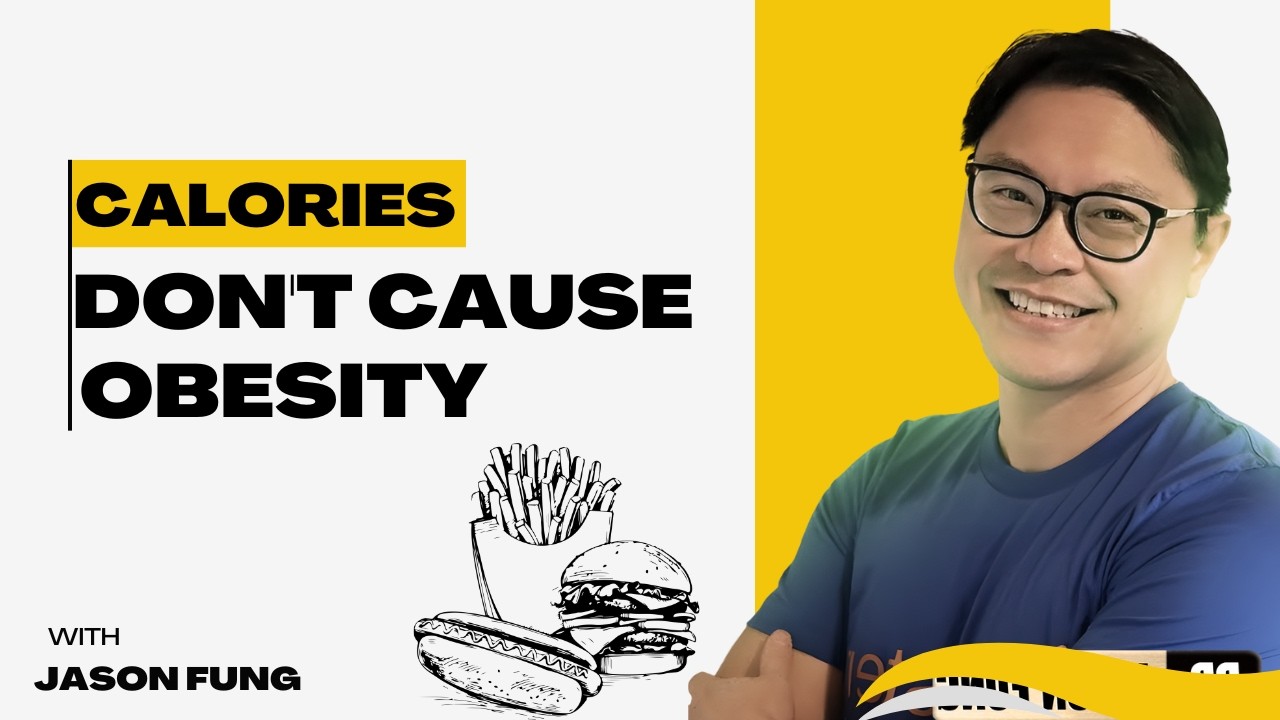- The oversimplification of obesity causes
- The role of insulin sensitivity in weight management
- Caloric balance: Beyond calories in and out
- The societal implications of obesity narratives
- Strategies for addressing obesity comprehensively
Understanding why we gain weight involves examining medical narratives and scientific insights. One prominent misconception in obesity medicine is the oversimplified belief that weight gain occurs solely from consuming more calories than the body expends. This perspective, while relevant, falls short of addressing the complex interplay of biological systems, dietary patterns, and psychological factors.
The belief that obesity is primarily a result of poor personal choices ignores the nuanced science behind weight management. Numerous studies reveal the impact of metabolic pathways, hormones, and even genetics on how the body processes food. When we focus exclusively on caloric intake and expenditure, we overlook critical aspects like insulin sensitivity, which plays a significant role in how our bodies handle glucose and fat.
Insulin sensitivity refers to how effectively the body uses insulin, a hormone crucial for regulating blood sugar levels. When a person has high insulin sensitivity, their cells respond well to insulin, absorbing glucose efficiently and storing it as energy. Conversely, low insulin sensitivity can lead to weight gain and difficulty losing weight, as excess glucose remains in the bloodstream rather than being utilized. Understanding this hormonal mechanism shifts the emphasis away from simply counting calories to recognizing how food choices impact metabolic health.
In the context of caloric balance, while consuming fewer calories than one expends may lead to weight loss, this equation does not account for the quality of the calories consumed. Highly processed foods often contain added sugars and unhealthy fats, leading to fluctuations in insulin levels. These fluctuations can foster cravings and promote fat storage, making it more challenging to maintain a caloric deficit. The idea that weight management revolves exclusively around calories neglects the influence of food quality and its metabolic effects.
The societal narratives concerning obesity frequently frame weight as a matter of personal responsibility. This perspective overlooks how socioeconomic factors, food deserts, and access to nutrition education shape individuals’ dietary choices. People living in impoverished areas may lack access to fresh fruits and vegetables, forcing them to rely on inexpensive, calorie-dense options that contribute to weight gain. Addressing obesity is not merely about telling individuals to eat less and exercise more; it involves creating an environment that promotes healthier food choices and supports physical activity.
Given these complexities, comprehensive strategies for managing obesity should focus on several key areas. First, education about nutritional content versus caloric content can empower individuals to make better choices. Rather than solely emphasizing calorie restriction, diets should promote whole foods rich in nutrients and fiber while minimizing processed sugars and fats.
In addition, a focus on improving insulin sensitivity should be part of any weight management program. Regular physical activity, particularly strength training and cardiovascular exercise, helps increase muscle mass and enhances insulin sensitivity. Incorporating these activities into daily life can have a significant impact on metabolic health and aid in weight control.
Moreover, psychological factors should not be discounted. Weight management is often associated with emotional well-being and self-image. Behavioral interventions that address emotional eating, stress, and mental health can provide vital support for individuals striving to lose weight and maintain a healthy lifestyle.
Understanding the multifactorial nature of obesity allows for more compassionate and effective approaches to treatment. Addressing the various influences on weight gain can foster an inclusive dialogue that acknowledges both personal responsibility and systemic barriers.
As society continues to grapple with obesity, it becomes crucial to diversify conversations around this topic. This involves working collaboratively across various sectors—healthcare, policy, community organizations—to create holistic solutions. Through education, improved access to nutritious foods, targeted interventions, and supportive environments, society can begin to tackle the obesity crisis more effectively.
The narratives surrounding obesity need to shift from blame to understanding. Recognizing the biological, environmental, and psychological factors that contribute to weight gain can lead to more effective, evidence-based solutions that resonate with individuals. Conversations should be framed in ways that uplift and empower rather than stigmatize, fostering a healthier relationship with food and body image.
In exploring why we get fat, we uncover a multi-layered understanding that allows for more informed choices. As research advances, it’s essential for the conversation to evolve, drawing from scientific knowledge and real-world experiences to create a comprehensive approach to obesity management.
*****
Source Description
This is Why You’re Not Losing Weight (Its Not Calories) | Dr. Jason Fung
Pre-order The Hunger Code – Out March 2026 at www.doctorjasonfung.com
Visit www.drinkaeira.com for hunger management tools.
Stop counting calories! It’s the biggest, most damaging lie in obesity medicine.
In this video, Dr. Jason Fung, the best-selling author of The Obesity Code & The Hunger Code dismantles the single biggest myth in weight loss: Calories
In, Calories Out (CICO).
For decades, we’ve been told that weight gain is a personal failing—a simple lack
of willpower. Dr. Fung explains why this is completely false. He reveals that
weight gain isn’t a calorie problem; it’s a hormonal problem.
In this video you will learn:
● Why the CICO equation, while technically true, is practically useless for
weight loss.
● The problem: Why your Basal Metabolic Rate (BMR)
plummets when you cut calories, sabotaging your efforts.
● The true Arrow of Causality: Hormones (not calories) are the real cause
of weight gain.
● How Insulin, the master hormone, forces your body to store fat and makes
you hungrier.
● Why 100 calories from a cookie is NOT the same as 100 calories from an
egg.
● The Circular Logic trap that keeps people fixated on counting.
● How food acts as information that gives your body specific instructions.
This is a must-watch for anyone who has struggled with yo-yo dieting and is
looking for the real, science-based solution to lasting weight loss.
�� If you’re serious about losing weight without losing your health or youthfu
look, this video is a must-watch.
�� Subscribe now for more science-backed videos on fasting, weight loss, an
metabolic health. And don’t forget to like ��, comment ��, and share this vid
with anyone who still believes in the calorie deficit myth!
▬▬▬▬▬▬▬▬▬▬▬▬▬▬▬▬▬▬▬▬▬▬▬
⏱️ Chapters / Timestamps
00:00 – The Biggest Lie in Obesity Medicine
00:40 – The Flawed Calories In vs. Calories Out Equation
01:15 – Why We Think Obesity is a Personal Failing (And Why It’s Wrong)
02:13 – Body Fat is Tightly Controlled by Hormones
03:02 – The Problem: Why Eating Less Fails
03:50 – The Inevitable Drop: Basal Metabolic Rate (BMR)
04:37 – The Real Cause of Weight Gain: Hormones
05:13 – The Master Hormone: How Insulin Makes You Fat
06:00 – Hormones Control Your Hunger & BMR (Not Willpower)
08:21 – The Circular Logic Trap of CICO
08:40 – Not All Calories Are Equal (Cookies vs. Eggs)
10:14 – Food is NOT Just Energy, It’s Information
11:09 – The Critical Choice: Store Calories or Burn Calories?
12:12 – Final Takeaway: Focus on Hormones, Not Calories
=============================
�� BOOKS:
�� The Obesity Code – Reviewing underlying physiology of weight loss an
how low carb diets and fasting can help.
�� The Diabetes Code – Reviewing how type 2 diabetes is a reversibl
disease and dietary strategies. https://www.amazon.com/dp/B0795BLS8D?…
�� The Cancer Code – Scientific exploration of how cancer develops
�� Amazon:
�� USA – https://www.amazon.com/shop/jasonfung
�� Canada – https://www.amazon.ca/shop/jasonfung
▬▬▬▬▬▬▬▬▬▬▬▬▬▬▬▬▬▬▬▬▬▬▬
�� Please visit our :-
�� Website – https://www.doctorjasonfung.com
�� Blog- / drjasonfung
�� Community- https://www.thefastingmethod.com
�� Facebook – / jason.fung.313
�� Instagram – / drjasonfung
�� Twitter – / drjasonfung
▬▬▬▬▬▬▬▬▬▬▬▬▬▬▬▬▬▬▬▬▬▬▬
�� YouTube Medical Lectures (for specialist physicians)
▶️ The Roots of the Obesity Epidemic: https: // • The Obesity Epidemic,
Explained
▶️ Therapeutic Fasting – The Two Compartment Problem:https: // •
Fasting and Weight Loss – Solving the…
▶️ Does Calorie Counting work?: • Why Calorie Counting rarely leads to
…
▶️ Two Big Lies of Type 2 Diabetes: • Two Big Lies about Type 2
Diabetes
▬▬▬▬▬▬▬▬▬▬▬▬▬▬▬▬▬▬▬▬▬▬▬
If you liked the video, Please Do Subscribe My Channel ����
Keep Supporting me So I can Continue to provide you with free content
each week!!��
▬▬▬▬▬▬▬▬▬▬▬▬▬▬▬▬▬▬▬▬▬▬▬
�� �� Thank you for Watching
#WeightLoss #ObesityCode #InsulinResistance #CICO #Hormones
#JasonFung #WeightGain #DietMyths #Metabolism

